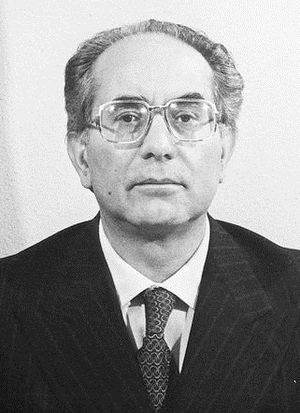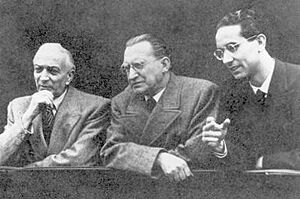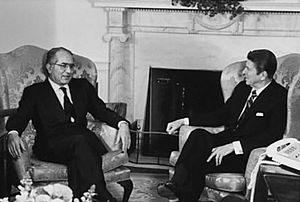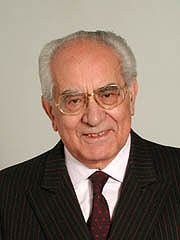Emilio Colombo facts for kids
Quick facts for kids
Senator for life
Emilio Colombo
|
|||||||||||||||||||||||||||||||||||||||||||||||||||||||||||||||||||||||||||||||||||||||||||||||||||||||||||||||||||
|---|---|---|---|---|---|---|---|---|---|---|---|---|---|---|---|---|---|---|---|---|---|---|---|---|---|---|---|---|---|---|---|---|---|---|---|---|---|---|---|---|---|---|---|---|---|---|---|---|---|---|---|---|---|---|---|---|---|---|---|---|---|---|---|---|---|---|---|---|---|---|---|---|---|---|---|---|---|---|---|---|---|---|---|---|---|---|---|---|---|---|---|---|---|---|---|---|---|---|---|---|---|---|---|---|---|---|---|---|---|---|---|---|---|---|---|
 |
|||||||||||||||||||||||||||||||||||||||||||||||||||||||||||||||||||||||||||||||||||||||||||||||||||||||||||||||||||
| Prime Minister of Italy | |||||||||||||||||||||||||||||||||||||||||||||||||||||||||||||||||||||||||||||||||||||||||||||||||||||||||||||||||||
| In office 6 August 1970 – 18 February 1972 |
|||||||||||||||||||||||||||||||||||||||||||||||||||||||||||||||||||||||||||||||||||||||||||||||||||||||||||||||||||
| President | Giuseppe Saragat Giovanni Leone |
||||||||||||||||||||||||||||||||||||||||||||||||||||||||||||||||||||||||||||||||||||||||||||||||||||||||||||||||||
| Deputy | Francesco De Martino | ||||||||||||||||||||||||||||||||||||||||||||||||||||||||||||||||||||||||||||||||||||||||||||||||||||||||||||||||||
| Preceded by | Mariano Rumor | ||||||||||||||||||||||||||||||||||||||||||||||||||||||||||||||||||||||||||||||||||||||||||||||||||||||||||||||||||
| Succeeded by | Giulio Andreotti | ||||||||||||||||||||||||||||||||||||||||||||||||||||||||||||||||||||||||||||||||||||||||||||||||||||||||||||||||||
| President of the European Parliament | |||||||||||||||||||||||||||||||||||||||||||||||||||||||||||||||||||||||||||||||||||||||||||||||||||||||||||||||||||
| In office 8 March 1977 – 17 July 1979 |
|||||||||||||||||||||||||||||||||||||||||||||||||||||||||||||||||||||||||||||||||||||||||||||||||||||||||||||||||||
| Preceded by | Georges Spénale | ||||||||||||||||||||||||||||||||||||||||||||||||||||||||||||||||||||||||||||||||||||||||||||||||||||||||||||||||||
| Succeeded by | Simone Veil | ||||||||||||||||||||||||||||||||||||||||||||||||||||||||||||||||||||||||||||||||||||||||||||||||||||||||||||||||||
|
|||||||||||||||||||||||||||||||||||||||||||||||||||||||||||||||||||||||||||||||||||||||||||||||||||||||||||||||||||
|
|||||||||||||||||||||||||||||||||||||||||||||||||||||||||||||||||||||||||||||||||||||||||||||||||||||||||||||||||||
| Personal details | |||||||||||||||||||||||||||||||||||||||||||||||||||||||||||||||||||||||||||||||||||||||||||||||||||||||||||||||||||
| Born | 11 April 1920 Potenza, Basilicata, Kingdom of Italy |
||||||||||||||||||||||||||||||||||||||||||||||||||||||||||||||||||||||||||||||||||||||||||||||||||||||||||||||||||
| Died | 24 June 2013 (aged 93) Rome, Lazio, Italy |
||||||||||||||||||||||||||||||||||||||||||||||||||||||||||||||||||||||||||||||||||||||||||||||||||||||||||||||||||
| Political party | Christian Democracy | ||||||||||||||||||||||||||||||||||||||||||||||||||||||||||||||||||||||||||||||||||||||||||||||||||||||||||||||||||
| Alma mater | Sapienza University | ||||||||||||||||||||||||||||||||||||||||||||||||||||||||||||||||||||||||||||||||||||||||||||||||||||||||||||||||||
Emilio Colombo (born April 11, 1920 – died June 24, 2013) was an important Italian politician. He was part of the Christian Democracy party. He even served as the Prime Minister of Italy from August 1970 to February 1972.
During his long career, Colombo held many important jobs in the Italian government. He was the Minister of Agriculture from 1955 to 1958. He also served as Minister of Foreign Trade, Justice, Treasury, Budget, Finance, and Foreign Affairs at different times. Emilio Colombo was a strong supporter of European unity. He was also the President of the European Parliament from 1977 to 1979.
In 2003, he was named a Senator for life. This meant he held a seat in the Italian Senate until he passed away.
Contents
Emilio Colombo's Early Life and Education
Emilio Colombo was born in Potenza, Basilicata, Italy, on April 11, 1920. He grew up in a middle-class family with six brothers. His father, Angelo Colombo, worked for the government. His mother, Rosa Tordella, was a housewife.
In 1935, Emilio helped start a local group of Catholic Action (AC). This was a Catholic organization that was allowed to exist even under Benito Mussolini's rule. By 1937, Colombo became the president of Potenza's Catholic Action. He also joined the National Council of Catholic Action's Youth. In the same year, he finished high school at "Quintus Horatius Flaccus" in Potenza.
In 1941, Colombo earned a law degree from the Sapienza University of Rome. His studies focused on canon law, which is church law. On August 1, 1942, he joined the army and took part in World War II. After the war ended in September 1943, Colombo went back to Basilicata. He began his political work, focusing on anti-fascist and Christian democratic ideas. From 1944 to 1947, he was the general secretary for Catholic Action's Youth.
Emilio Colombo's Political Journey
Colombo officially joined the Christian Democracy (DC) party in 1943. In the 1946 election, he was elected to the Constituent Assembly of Italy. He received almost 21,000 votes. This made him one of the youngest members of parliament. He was elected from the Potenza–Matera area. This region remained his main political base throughout his career.
Two years later, in 1948, Colombo was elected again. He joined the Chamber of Deputies for his home area. He received over 43,000 votes this time. From May 1948 to July 1951, he worked as an undersecretary. This was for the Ministry of Agriculture and Forests. He served in the governments led by Alcide De Gasperi.
During these years, Colombo helped solve problems in Calabria in 1949. There were conflicts over land being taken by farmers. He also worked with Minister Antonio Segni to pass a new law about farming. This land reform law was approved in October 1950. It received some money from the Marshall Plan, which was a program from the United States. This reform aimed to give land to farm workers. It helped them become small business owners instead of just working for large landowners.
Emilio Colombo as Prime Minister
When Emilio Colombo was Prime Minister, several important new laws were passed. In October 1971, a housing reform law was introduced. This law changed how land could be taken for public use. It also included plans for improving cities.
A law passed in December 1971 made state money available. This money was used to build kindergartens in every local area. Another law from December 1971 brought in new rules. These rules protected female workers and provided maternity insurance.
Maternity leave was made longer for all female employees. They could take two months off before and two months after giving birth. They also received 80% of their earnings during this time. This included women working in agriculture. Women could also take an extra six months of leave during their child's first year. They kept their jobs and received 30% of their earnings. They could also take paid time off if their child was sick during the first three years. A special allowance was also created for self-employed women in farming and business.
Later, Emilio Colombo became the president of the European Parliament. He held this job from 1977 to 1979. He also served as Italy's foreign minister from 1980 to 1983, and again from 1992 to 1993. In February 2003, President Carlo Azeglio Ciampi gave him Italy's highest political honor. He named Colombo a Senator for life.
For the first five years as a lifetime senator, he was an independent politician. From 2008 until his death in June 2013, Colombo was part of the Autonomies group. This group was mostly made up of elected officials from Trentino-Alto Adige/Südtirol.
After the elections in February 2013, it was hard for the Senate to choose a leader. Emilio Colombo became the temporary President of the Senate. He served until Pietro Grasso was elected on March 16, 2013. The oldest senator, former Prime Minister Giulio Andreotti, was supposed to lead the new parliament. But he was not available, so Colombo took on the role.
After Giulio Andreotti died on May 6, 2013, Emilio Colombo became the last living member of the Italian Constituent Assembly. This assembly wrote Italy's constitution after World War II.
Honors and Awards for Emilio Colombo
Emilio Colombo received many awards for his work.
 France: Grand Officier of the Legion of Honour
France: Grand Officier of the Legion of Honour Iran: Commemorative Medal of the 2,500 year celebration of the Persian Empire
Iran: Commemorative Medal of the 2,500 year celebration of the Persian Empire Italy : Knight of Grand Cross of the Order of Merit of the Italian Republic
Italy : Knight of Grand Cross of the Order of Merit of the Italian Republic Italy : Grand Cross of the Sacred Military Constantinian Order of Saint George
Italy : Grand Cross of the Sacred Military Constantinian Order of Saint George EU: Gold Medal of the Jean Monnet Foundation for Europe, in 2011.
EU: Gold Medal of the Jean Monnet Foundation for Europe, in 2011.
See also
 In Spanish: Emilio Colombo para niños
In Spanish: Emilio Colombo para niños




